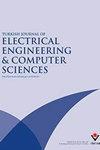The biobjective multiarmed bandit: learning approximate lexicographic optimal allocations
IF 1.5
4区 计算机科学
Q4 COMPUTER SCIENCE, ARTIFICIAL INTELLIGENCE
Turkish Journal of Electrical Engineering and Computer Sciences
Pub Date : 2019-04-01
DOI:10.3906/ELK-1806-221
引用次数: 2
Abstract
We consider a biobjective sequential decision-making problem where an allocation (arm) is called ε lexi- cographic optimal if its expected reward in the first objective is at most ε smaller than the highest expected reward, and its expected reward in the second objective is at least the expected reward of a lexicographic optimal arm. The goal of the learner is to select arms that are ε lexicographic optimal as much as possible without knowing the arm reward distributions beforehand. For this problem, we first show that the learner’s goal is equivalent to minimizing the ε lexicographic regret, and then, propose a learning algorithm whose ε lexicographic gap-dependent regret is bounded and gap-independent regret is sublinear in the number of rounds with high probability. Then, we apply the proposed model and algorithm for dynamic rate and channel selection in a cognitive radio network with imperfect channel sensing. Our results show that the proposed algorithm is able to learn the approximate lexicographic optimal rate–channel pair that simultaneously minimizes the primary user interference and maximizes the secondary user throughput.双目标多臂强盗:学习近似字典最优分配
我们考虑了一个双目标序列决策问题,其中如果分配(臂)在第一个目标中的期望报酬最多小于最高期望报酬ε,并且其在第二个目标中的期望报酬至少是字典最优臂的期望报酬,则称为ε词典最优分配(臂)。学习者的目标是在不事先知道手臂奖励分布的情况下,尽可能地选择在字典学上最优的手臂。针对这一问题,我们首先证明了学习者的目标相当于最小化ε词典遗憾,然后提出了一种ε词典间隔依赖的遗憾是有界的,而ε词典间隔独立的遗憾在轮数上是次线性的且概率很大的学习算法。然后,我们将所提出的模型和算法应用于具有不完全信道感知的认知无线网络的动态速率和信道选择。我们的研究结果表明,所提出的算法能够学习近似字典最优速率信道对,同时最小化主用户干扰和最大化副用户吞吐量。
本文章由计算机程序翻译,如有差异,请以英文原文为准。
求助全文
约1分钟内获得全文
求助全文
来源期刊

Turkish Journal of Electrical Engineering and Computer Sciences
COMPUTER SCIENCE, ARTIFICIAL INTELLIGENCE-ENGINEERING, ELECTRICAL & ELECTRONIC
CiteScore
2.90
自引率
9.10%
发文量
95
审稿时长
6.9 months
期刊介绍:
The Turkish Journal of Electrical Engineering & Computer Sciences is published electronically 6 times a year by the Scientific and Technological Research Council of Turkey (TÜBİTAK)
Accepts English-language manuscripts in the areas of power and energy, environmental sustainability and energy efficiency, electronics, industry applications, control systems, information and systems, applied electromagnetics, communications, signal and image processing, tomographic image reconstruction, face recognition, biometrics, speech processing, video processing and analysis, object recognition, classification, feature extraction, parallel and distributed computing, cognitive systems, interaction, robotics, digital libraries and content, personalized healthcare, ICT for mobility, sensors, and artificial intelligence.
Contribution is open to researchers of all nationalities.
 求助内容:
求助内容: 应助结果提醒方式:
应助结果提醒方式:


